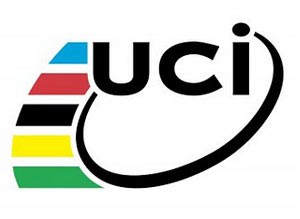Fee of thousands of Euros for “UCI Approved” label would have been too much for small manufacturers
 The International Cycling Union (UCI) has agreed to postpone its approval process for new equipment, according to bikebiz.com. The scheme, which would have required all frames and forks to carry a “UCI Approved” label in order to be used in UCI sanctioned competition, would be too expensive for smaller manufacturers and push up the prices of bikes, many in the industry claimed.
The International Cycling Union (UCI) has agreed to postpone its approval process for new equipment, according to bikebiz.com. The scheme, which would have required all frames and forks to carry a “UCI Approved” label in order to be used in UCI sanctioned competition, would be too expensive for smaller manufacturers and push up the prices of bikes, many in the industry claimed.
The UCI will announce a revised timetable for the process in February.
According to bikebiz.com the approval process for a monocoque frame would cost more than $14,000; this amount would be too much for small producers to meet, according to industry suppliers, and the cost would doubtlessly be passed on to the consumer, pushing up the price of bikes.
After a two-day meeting with bike manufacturers last week, the UCI has decided to postpone the implementation of the approval process and will make a number of changes, which it hopes will meet the concerns of the industry.
The approval process was born in order to clarify and enforce the UCI’s regulations on frame design and prevent expensive misunderstandings. While it will not make any changes to those regulations, which dictate the minimum weight for a complete bike and the geometry and shape of its tubes, it hopes to ensure that any designs that push the limits of those regulations should be approved before production.
Potentially expensive examples of frames being outlawed by UCI regulations after they had reached production are the Specialized Shiv and the Cervélo P4; both time trial frames. The Shiv’s stem area in front of the head tube was deemed to be a fairing and therefore illegal (necessitating an emergency replacement bike for Astana’s Alberto Contador in last year’s Volta ao Algarve); the P4’s integrated bottle cage and aero bottle fell foul of the same rule and so Cervélo TestTeam riders (and now Garmin-Cervélo riders) had to ride with a separate bottle cage on place.
Both bikes had previously been ridden in the UCI’s own World Championships; to victory in the case of the Shiv, ridden by Switzerland’s Fabian Cancellara.
Luckily for both Specialized and Cervélo, both frames are legal in triathlon, and so sales there mean that the money spent on the frames’ development was not wasted in either case.